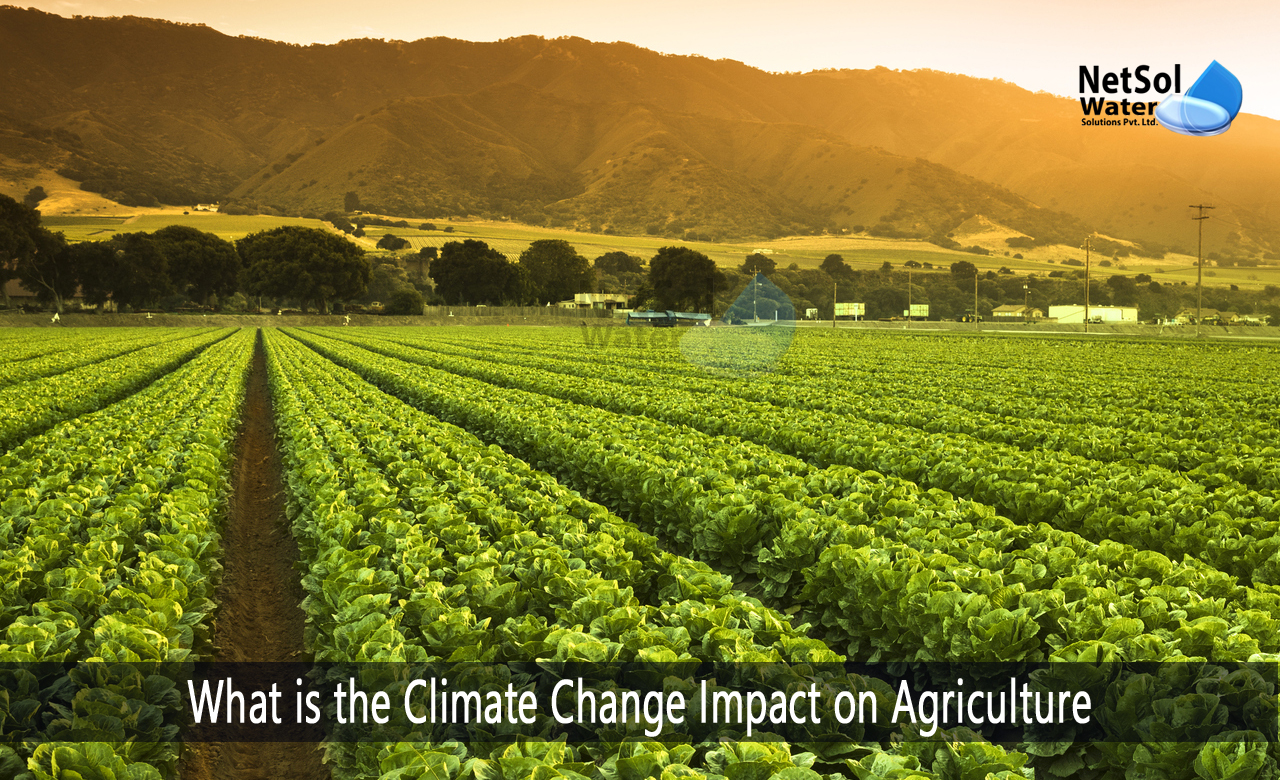Since time immemorial, the agricultural system has relied on climate and weather patterns to improve productivity, quality, and output. However, climate change is a growing concern because it is affecting traditional farming practices all over the world, and depleting crop quality and quantity.
Let’s understand how climate change affects agriculture, and what is the possible remedy?
What is the Climate Change Impact on Agriculture?
Floods, droughts, heatwaves and fires are disrupting natural ecosystems and destroying agricultural lands, around the world. Changing atmospheric temperatures are expected to have an impact on future water availability. As a result of the increased evaporation and transpiration mechanisms and low soil moisture, large areas of land will become unsuitable for agriculture.
Water scarcity is one of the world's most serious problems today, and it will have an impact on agriculture in the future. According to reports, the demand for irrigation water will rise by 50% in developing countries and 16% in developed countries.
According to experts, the rapidly changing climate will result in the spread of various pest types, which will increase plant diseases around the world. Furthermore, anthropogenic climate change factors have increased water and soil salinity.
Role of Biostimulants in agriculture
Food demand is expected to rise exponentially as the world's population grows. Previously, food security goals were achieved through unsustainable means such as chemical fertilizers and resource exploitation.
However, in order to mitigate the effects of climate change, improve crop yield, and support the agricultural system, sustainable agricultural solutions and measures are urgently needed today. In agriculture, biostimulants have emerged as an effective solution for improving plant growth mechanisms, overall plant health, and maximizing productivity.
What are Biostimulants?
Biostimulants are biological agents, such as fungi or microorganisms, which are applied to a plant or seed to improve crop quality, while causing no harm to the environment. It also aids in nutrient uptake, growth, and the ability of plants to combat abiotic stresses. Soil conditioners, for example, can be applied as a powder, granules, or as liquid foliar.
The main distinction is that biostimulants do not benefit plants by providing essential nutrients. Instead, it aids plant nutrition processes, improves various plant characteristics, and promotes plant development throughout the plant's life cycle.
Ways Biostimulants Can Help
The ability of biostimulants to improve nutrient availability and uptake by plants, thereby increasing crop productivity, is their main selling point. Aside from crop yield, biostimulants have been shown to improve quality and quantity by influencing size, shape, color, antioxidant properties, and metabolism.
Other features include improving photosynthesis, regulating plant hormones, reducing yield loss, and increasing stress resistance.
Advantages of biostimulants
· Salinity - Biostimulants help plants overcome salinity stress and improve root and shoot dry weight, in stressful situations and conditions.
· Water Scarcity - Biostimulants assist plants in reaching soil pores and obtaining water, which is otherwise impossible for plants. It can also aid in the preservation of soil moisture.
· Stress aids in the fight against pathogens, reducing biotic stress. It also improves the tolerance mechanism against pests and diseases.
· Fast Recovery - Biostimulants aid in the recovery of plants from extreme weather conditions, such as drought or flooding.
Conclusion
Chemical fertilizers have been widely used to overcome these challenges, since the green revolution. However, it has depleted soil quality and polluted the environment.
Today, much emphasis is placed on comprehending the complex tolerance mechanisms that plants employ, in response to environmental stresses. This is where biostimulants, an environmentally friendly and long-term solution, can be used to improve plant capacities and resilience to stress.
How can we assist?
Netsol Water is a leading company with a wide range of sustainable agricultural solutions.We offer various water, wastewater and waste treatment solutions like solid waste convertors, organic waste convertors, green waste recyclers, STPs, ETPs, RO plants, water softeners, and many more.
Netsol Water is Greater Noida-based leading water & wastewater treatment plant manufacturer. We are industry's most demanding company based on client review and work quality. We are known as best commercial RO plant manufacturers, industrial RO plant manufacturer, sewage treatment plant manufacturer, Water Softener Plant Manufacturers and effluent treatment plant manufacturers. Apart from this 24x7 customer support is our USP. Call on +91-9650608473, or write us at enquiry@netsolwater.com for any support, inquiry or product-purchase related query.



